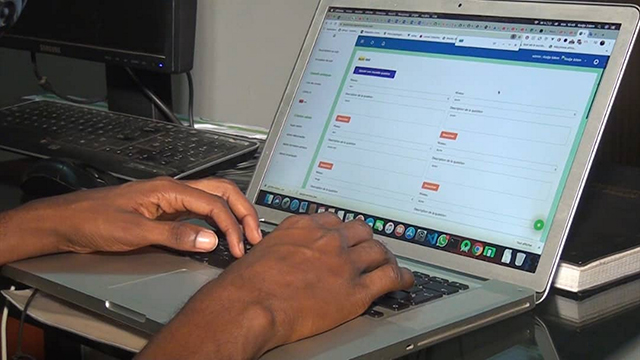Development of a low-cost, open-source echo stethoscope
— Multi-country —

BACKGROUND
For the past few years, Fondation Pierre Fabre has been exploring the advantages provided by ICT in the realm of healthcare. In 2012 and 2013, for example, it subsidised the DrepanoMRS application. In 2015, however, the Foundation decided to take a more ambitious step by financing the design and development of an echo stethoscope through the EchOpen project. This initiative is a response to advances in ultrasonic diagnostic equipment, which continues to become less bulky and less costly.
EchOpen is working to develop an echo-stethoscope sensor prototype that plugs into a smartphone or tablet. This 21st-century stethoscope, simple and extremely portable, would make it possible to obtain real-time ultrasound and Doppler imaging, whatever the exam (gynaecological, vascular, muscle-tendon, breast, cervical, etc.) and to share the results using the Cloud for diagnostic assistance from specialists.
The unprecedented development of this tool, in Open Source Hardware, is one of its main assets: by rallying the volunteer efforts of a strong scientific community, it could be distributed inexpensively in the South. It would also promote better access to medical imaging and telemedicine, for swifter diagnoses. A way to fundamentally change patients referrals and save lives in under-medicalised areas.
KEY FACTS
_____
Priority
Access to quality health care
Programme
Since 2015
Type of involvement
Distributor and operator
Actions
- Funding for equipment, human resources and operating costs
- Project support in communications and partnerships research
EchOpen
1, Parvis Notre-Dame
Place Jean-Paul II
75004 Paris
http://www.echopen.org

EchOpen is a project of global scale: it will improve healthcare in the North and alleviate the difficulties in access to healthcare in the South. Whether in emergency, general, specialty or bush medicine, it will make diagnostic care possible, inexpensively and ubiquitously. With a device that fits in your hand, one that is a hundred times less expensive than conventional ultrasound equipment, caregivers will see the state of the organs and immediately be able to distinguish major, serious, urgent pathologies from those that merit further examination. Furthermore, the open source nature of EchOpen will generate the community-leverage effect needed for it to be widely disseminated. We are now at a tipping point: the next fifteen years should free up technologies in imaging (MRI, scanners, etc.) and biology.”
Mehdi Benchoufi
President of the EchOpen Association
Future initiatives
The EchOpen team expects its prototype to be functional by 2016 – a very symbolic date, as it marks the bicentenary of the Laennec stethoscope. Another milestone: the training of future users of the echo-stethoscope through on-site and e-learning modules.
PARTNER
See also
The Global South eHealth Observatory
The Global South eHealth Observatory, a Fondation Pierre Fabre initiative, is designed to identify, document, promote and help develop eHealth initiatives that improve access to quality healthcare and medicines for the most disadvantaged populations in ressource-limited countries.
30/07/2018See also
Creation of the National Digital Health Center
In 2021, Togo’s minister of Health and Public Hygiene asked the Foundation to help it draw up and roll out a national eHealth strategy. The creation of a “National Digital Health Center” marks an essential step forward in the drive to provide a coherent, sustainable development framework.
28/11/2022Follow our actions
Mobile Clinics in the Central African Republic: Caring for Survivors of Violence
This unique initiative in the Central African Republic enables thousands of women to access crucial healthcare services and rebuild their lives.





